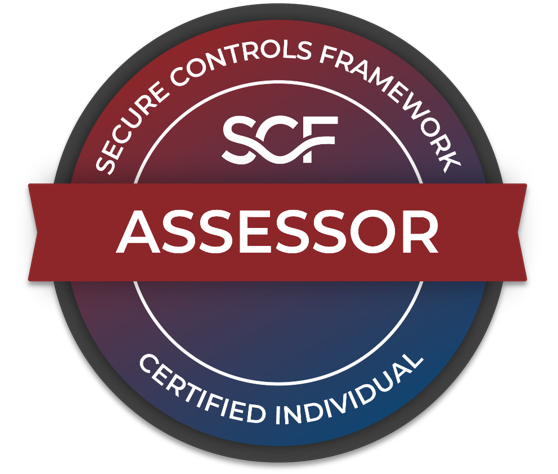1 of 1 Items
1 of 1 Items
 |
SCF Assessors are SAICO-certified individuals who are:
If you are interested in becoming an SCF Assessor, the first step is to take SCF Assessor training to start that journey, which you can begin here - https://training.securecontrolsframework.com/products/courses/scf-assessor-training! |
SCF Assessor Syllabus |
The SCF Assessor role exists within the SCF CAP Ecosystem: